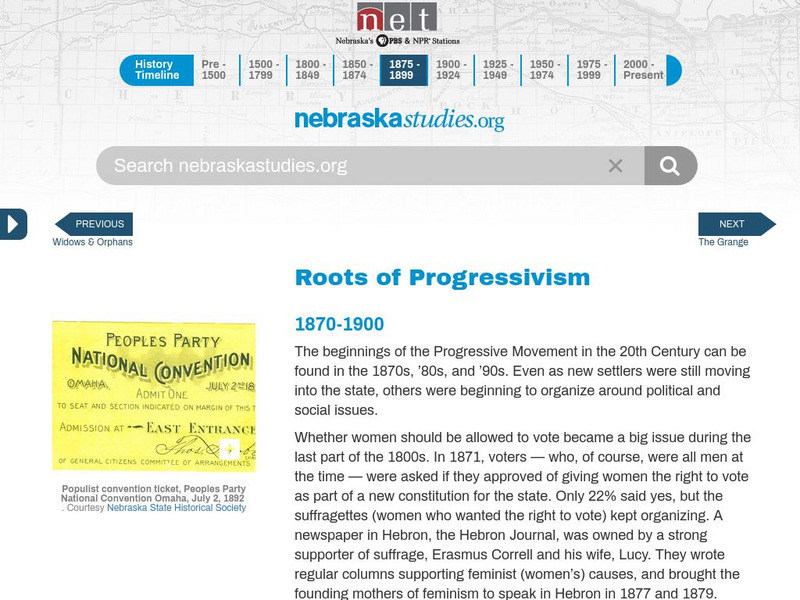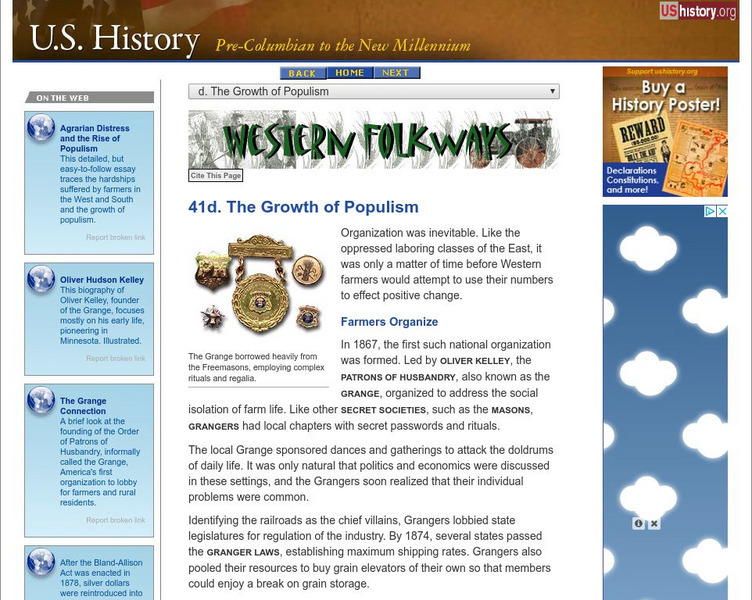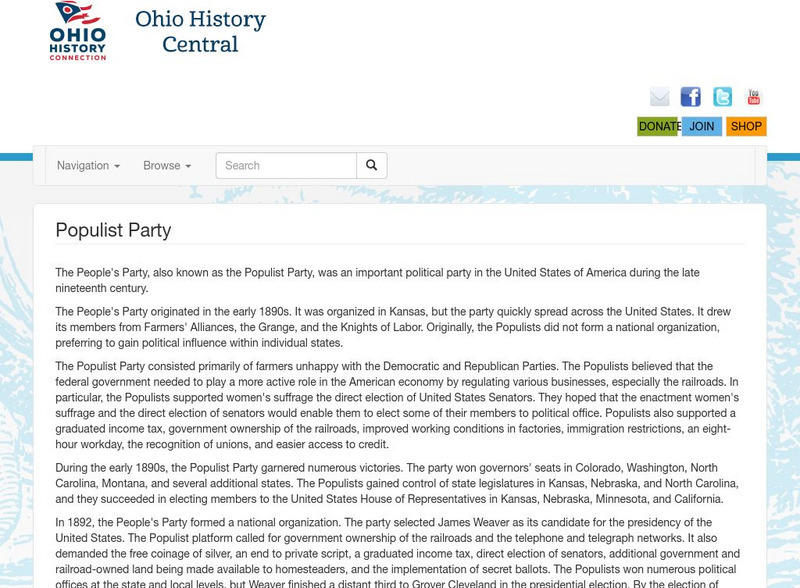Missouri State University
Missouri State University: Lost World of Gilded Age Politics
This extensive look at politics between 1876 and 1896 describes how the Republican Party functioned during this time and how the excesses in politics resulted in reform and the next era in politics, the Progressive Era. A very...
Nebraska Studies
Nebraska Studies: Roots of Progressivism
A lengthy discussion of Populism and the Populist Party, especially in Nebraska. Read about the Populist Party platform, issues, candidates, and how populism formed the roots of the progressivism in the early 20th century.
OpenStax
Open Stax: Politics in Gilded Age 1870 1900: Farmers' Revolt in the Populist Era
Learn about the development of the farmers' protest movement in the 19th century, and how it evolved into a political movement.
Khan Academy
Khan Academy: Ap Us History: Period 6: 1865 1898: Politics in the Gilded Age
The study resource from Khan Academy provides an overview of Period 6: 1865-1898 in American History. The politics in the Gilded Age is discussed in this lesson. This resource is designed as a review for the AP US History Test.
Independence Hall Association
U.s. History: The Growth of Populism
Western farmers organized in an attempt to have their issues heard politically. Read about the various farmers' organizations which developed into the idea of populism and the formation of the Populist Party.
Ohio History Central
Ohio History Central: Grange
A description of the establishment of the Grange, or Patrons of Husbandry, in the mid-1800s and how the movement helped farmers.
Ohio History Central
Ohio History Central: Populist Party
The Populist Party was one of the more successful third parties, at least in state politics. Read about its platform on the national and state levels in the 1890s.








